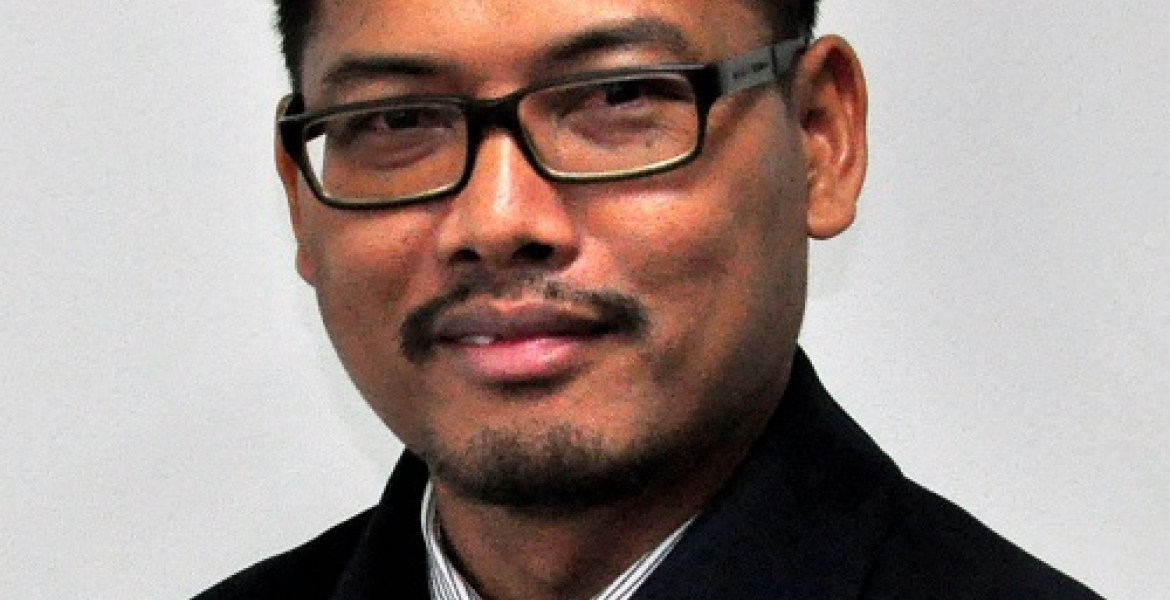UMP committed to continuous upgrading of community socioeconomic status
By: ZAINAL HAJI BAHARI, GENERAL MANAGER, DEPARTMENT OF SOCIOECONOMY & SPECIAL PROJECTS, UMP ADVANCED
Universiti Malaysia Pahang (UMP) Advanced Education continues to play its pivotal role as the agent of change in bringing about a consistent upgrade of the socioeconomic status of the surrounding community, by offering various short-term programmes, including competency-building courses, in collaboration with both governmental bodies and the private sector.
Originally established as the Centre for Continuing Education & Professional Development (CENFED), the revamped UMP Advanced sees its role paralleled to the commitment of the university at large, to maximize the potential and competency of short-term programmes, in respond to the Government’s call to make available adequate pool of skilled and semi-skilled human capital.
This particular call is part and parcel of the country’s education blueprint – Malaysia Education Development Plan 2013-2025 (PPPM) and National Higher Education Strategic Plan (PSPTN) – which also lends focus on empowering training courses under the Technical & Vocational Education and Training (TVET).
Being true to its calling, the Department of SocioEconomy & Special Projects at UMP Advanced has, naturally, embarked on collaborations with several government agencies in support of the implementation of such blueprint and plans.
The National Blue Ocean Strategy (NBOS) concept is thereby applied for each and every cooperation with external stakeholders to ensure that every programme is conducted to the highest standard and meets market demand.
One such programme having a significant impact on the local community is “Empower ECER Mahkota”. Implemented in 2011, the programme has successfully trained 13,081 participants from outside Kuantan.
ECER Mahkota outlines educational courses, covering underprivileged (B40) and indigenous students, who are either weak or moderate in their academic achievements.
The programme was eventually well-received by the State and District Education Departments, District Officers and all local leaders, when it became obvious that underprivileged students were given the rare opportunities to participate in various activities conducted within the school compound, field trips to UMP, boot camps and education & career counseling, including a special programme for parents and teachers.
Among the most notable success of the programme was when indigenous students got accepted into boarding schools (SBP) and Maktab Rendah Sains MARA (MRSM) across the country, and some even went farther and enrolled into institutions of higher learning.
As for unemployed youth and single mothers, they were never sidelined, but were also given the opening to undergo an Entrepreneur & Skill-building Programme – where they took courses to become budding entrepreneurs, many of whom can now afford to conduct businesses from the comfort of their own homes, and trade commerce online.
The modules developed for these entrepreneurs do not only focus on certain subject matter or practical application, but also took into consideration additional exposures to digital marketing, financial management and entrepreneurial motivation courses.
These modules have been duly certified by the university’s Senate and Council of Lifelong Learning, which allowed for participants who completed their studies and fulfilled the prerequisites to be conferred the accredited Professional Certificate from UMP Advanced.
To help budding entrepreneurs expand their business potentials, UMP Advanced has collaborated with the East Coast Economic Region Development Council (ECERDC) to provide commercial spaces for these newly established enterprises to promote, market and sell their products.
One good example is the construction of a complex and processing centre of sea produce called D’ Kuala. The complex boasts of 12 commercial lots comprising four units of factory processing sea produce; four restaurants and four convenience stores. To date, all 12 commercial lots are fully operational.
Last, but not least, focus is also given to retirees and the elderlies, when in 2018, UMP signed a Memorandum of Understanding (MoU) with Perbadanan Hal Ehwal Veteran Angkatan Tentera – a corporation which looks after the welfare of retired armed forces personnel – to facilitate the running of a Veterans’ SocioEconomic Development Programme (PPSEV).
Sealed on December 23, 2018, the MoU signed in conjunction with the PERHEBAT 52nd Convocation Ceremony, in the presence of the Minister of Defence Mohamad Sabu, who represented the Prime Minister of Malaysia, Tun Dr. Mahathir Mohamad.
In his speech text read out by the Minister of Defence, Tun Dr. Mahathir called upon the private sector to inspire more collaborations within their industries to help alleviate the current pitiable socioeconomic status of the veterans and retired armed forces personnel – who generally had to leave full-time employment at such a young age.
On these notes, it is obligatory for UMP Advanced to ensure that the programmes and courses conducted are relevant and reflective of the fields of expertise, to ensure that experience and skills-set learnt are utilized to generate income and elevate the socioeconomic status of a particular focused group.
In line with such fiduciary duty, UMP Advanced is collaborating with Malaysia Building Academy (ABM) and the Construction Industry Development Board (CIDB) to accredit each and every programme it conducts. The two accreditation bodies will certainly help ensure that every UMP Advanced trainee is of quality and graduate with the appropriate qualification that meets industry demand.
This article was published in the Malay daily, Berita Harian, on February 25, 2019.
- 368 views



 Reports by:
Reports by: 






